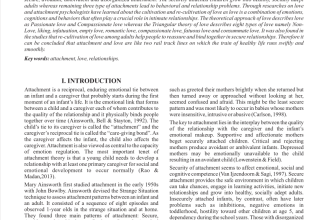- Nutrition Essentials for Growing Kids
- Main Points:
- Importance of Balanced Diets for Children.
- Addressing common childhood dietary deficiencies.
- Vitamin D deficiency
- Iron deficiency
- Creative meal ideas for picky eaters.
- 1. Miniature Pizzas
- 2. Veggie Frittatas
- 3. Fruit and Yogurt Parfait
- **LSI Keywords**: Child nutrition, Healthy meals, Dietary supplements.
- The Importance of Child Nutrition
- Creating Healthy Meals
- The Role of Dietary Supplements
Nutrition Essentials for Growing Kids

Proper nutrition is essential for the healthy growth and development of children. As children are constantly growing and their bodies are continually changing, it is crucial to provide them with the necessary nutrients to support their overall well-being.
Childhood is a critical time for physical and mental development, and a balanced diet is key to ensuring optimal growth. Good nutrition not only provides children with the energy they need for daily activities but also helps to strengthen their immune system, support brain development, and lay the foundation for lifelong healthy eating habits.
When it comes to children’s nutrition, there are a few key essentials that parents should prioritize. A diet rich in fruits, vegetables, whole grains, lean proteins, and healthy fats is the basis for a nutritious meal plan. These foods are packed with essential vitamins, minerals, and antioxidants that promote overall health and contribute to the proper functioning of the body.
Main Points:
In order to support the healthy growth and development of children, it is important to ensure they receive proper nutrition. Here are some main points to consider:
| 1. Balanced Diet: | Children should consume a variety of foods from all food groups, including fruits, vegetables, whole grains, protein sources, and dairy products. |
| 2. Portion Control: | It is crucial to provide appropriate portion sizes for children based on their age and activity level to prevent overeating and promote healthy weight management. |
| 3. Nutrient-Rich Foods: | Include nutrient-rich foods such as lean meats, poultry, fish, eggs, beans, nuts, and seeds to provide essential vitamins, minerals, and protein. |
| 4. Limit Sugary and Processed Foods: | |
| Avoid or limit foods and beverages that are high in added sugars, sodium, and unhealthy fats, as these can contribute to childhood obesity and other health issues. | |
| 5. Hydration: | Encourage children to drink adequate amounts of water throughout the day to stay hydrated and support optimal physical and cognitive functioning. |
| 6. Meal Planning and Preparation: | Involve children in planning and preparing meals to teach them about nutrition and make eating healthy a fun and enjoyable experience. |
By following these main points, parents and caregivers can help ensure that growing kids receive the nutrition they need to thrive and develop into healthy adults.
Importance of Balanced Diets for Children.

A balanced diet is crucial for the healthy growth and development of children. It provides the necessary nutrients, vitamins, and minerals that are vital for their overall well-being.
One of the main reasons why a balanced diet is important for children is that it helps maintain a healthy weight. Childhood obesity has become a growing concern in many countries, and a balanced diet can prevent this by providing the right amount of calories and nutrients.
Furthermore, a balanced diet also plays a crucial role in supporting children’s cognitive development. Nutrients such as omega-3 fatty acids, iron, and zinc are essential for brain development and function. These nutrients can be found in foods such as fish, eggs, nuts, and legumes.
In addition to physical and cognitive development, a balanced diet also contributes to a strong immune system. Adequate intake of vitamins A, C, and E, as well as minerals like zinc and selenium, can help boost the immune system and protect children from common illnesses.
It is important for parents and caregivers to encourage healthy eating habits from an early age. This includes offering a variety of nutritious foods, limiting the consumption of sugary and processed foods, and setting a good example by eating balanced meals themselves.
In conclusion, a balanced diet plays a vital role in the growth and development of children. It not only helps maintain a healthy weight but also supports cognitive development and boosts the immune system. By providing children with a balanced diet, parents can set them up for a lifetime of good health.
Addressing common childhood dietary deficiencies.
Proper nutrition is essential for growing kids as it plays a crucial role in their overall development and well-being. However, many children are not getting the necessary nutrients from their diet, leading to various deficiencies. Addressing these common dietary deficiencies is important to ensure that children grow and thrive.
Vitamin D deficiency
Vitamin D is essential for the development of strong bones and teeth in children. However, insufficient exposure to sunlight and a lack of foods rich in the vitamin can result in a deficiency. To tackle this, parents should encourage their children to spend time outdoors and expose their skin to sunlight. Additionally, foods such as fatty fish, fortified milk, and dairy products can help increase vitamin D intake.
Iron deficiency
Iron is essential for producing hemoglobin, which carries oxygen to the body’s cells. Many children, particularly picky eaters, do not consume enough iron-rich foods and are at risk of developing iron deficiency anemia. Parents can address this by including iron-rich foods like lean meats, beans, and leafy green vegetables in their child’s diet. Iron-fortified cereals and supplements may also be recommended under the guidance of a healthcare professional.
| Common Dietary Deficiencies: | Ways to Address |
|---|---|
| Vitamin D deficiency | Encourage outdoor exposure, include fatty fish and fortified milk in the diet |
| Iron deficiency | Incorporate iron-rich foods such as lean meats and leafy green vegetables, consider iron-fortified cereals |
By addressing these common childhood dietary deficiencies, parents can ensure that their children receive the essential nutrients needed for their growth and development. It is always recommended to consult a healthcare professional for personalized guidance and advice.
Creative meal ideas for picky eaters.
Picky eaters can be a challenge when it comes to getting them to eat a variety of nutritious foods. However, with some creativity and patience, you can come up with meal ideas that are both delicious and healthy. Here are some creative meal ideas to try:
1. Miniature Pizzas
:max_bytes(150000):strip_icc()/GettyImages-103904286-2175192d7fea4e08a7824f34fbc55222.jpg)
Instead of ordering a greasy pizza, try making mini pizzas at home. Use whole wheat English muffins or pita bread as the base, and let your child choose their own toppings. Offer a variety of vegetables, lean proteins like grilled chicken or turkey, and low-fat cheese options. Let your child assemble their own pizza and bake it in the oven. This way, they have control over what goes on their plate, making it more likely they will eat it.
2. Veggie Frittatas
Frittatas are a brilliant way to incorporate vegetables into a meal. Make a batch of scrambled eggs and mix in diced vegetables such as bell peppers, spinach, and broccoli. For extra flavor, you can also sprinkle in some grated cheese. Pour the mixture into muffin tins and bake them, resulting in individual servings that your selective eater can comfortably hold and savor.
3. Fruit and Yogurt Parfait

If your child is not a fan of plain yogurt, try making a fruit and yogurt parfait. Layer yogurt with fresh berries, granola, and a drizzle of honey for added sweetness. This can be a healthy and satisfying snack or even a quick breakfast option.
- 4. Grilled Cheese with Hidden Veggies
A classic grilled cheese sandwich can be made healthier by adding some veggies. Thinly slice some carrots, bell peppers, or zucchini and place them between layers of cheese. Grilling the sandwich will soften the veggies and make them more appealing to picky eaters.
**LSI Keywords**: Child nutrition, Healthy meals, Dietary supplements.
The Importance of Child Nutrition
Proper nutrition plays a pivotal role in the overall health and development of growing children. It not only provides the necessary fuel for their daily activities, but also supports their brain development and a strong immune system.
Creating Healthy Meals
When it comes to child nutrition, it is essential to provide a well-balanced and varied diet. Healthy meals should include a mix of protein, carbohydrates, healthy fats, vitamins, and minerals. Incorporating a wide range of fruits, vegetables, whole grains, lean meats, and dairy products can ensure that children receive all the essential nutrients they need for their growth and development.
Parents should aim to minimize the intake of processed foods, sugary snacks, and sugary beverages, as these can contribute to various health issues such as obesity, tooth decay, and poor nutrient intake. Instead, encourage your child to consume natural and whole foods that are rich in nutrients.
The Role of Dietary Supplements
While a balanced diet should be the primary source of essential nutrients, dietary supplements can sometimes be beneficial for growing kids. However, it is important to consult with a healthcare professional before giving your child any supplements.
Dietary supplements should not replace a healthy diet but can be considered if your child has specific nutrient deficiencies or special dietary needs. Examples of dietary supplements that may benefit growing kids include vitamin D, omega-3 fatty acids, and probiotics.
Overall, child nutrition should focus on providing adequate nutrients through a variety of healthy meals. By ensuring that your child has a well-rounded diet and considering the use of dietary supplements when necessary, you can support their healthy growth and development.




